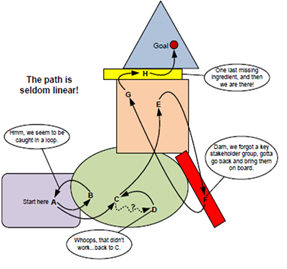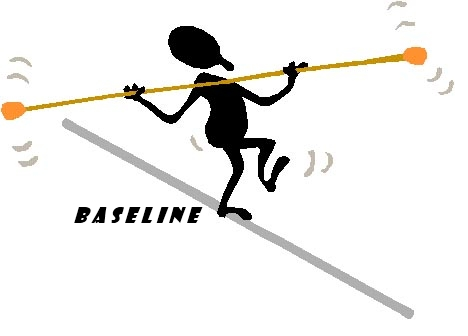Lockdown. Your country visit is cancelled. No-one knows when it will be safe and possible to reschedule. Yet you are still obliged to submit an annual report. Ideally one that demonstrates tangible progress towards outcomes rather than long lists of activities completed. How to deliver when you can’t travel and ‘see for yourself’.
More and more organizations turn to Outcome Harvesting to assess and document the results they make. But is Outcome Harvesting that different from previous attempts to understand how and why we contribute to change?
And what happens if one combine Theory of Change for planning with Outcome Harvesting for monitoring and evaluation? This article provides an answer.

How ‘good’ is good when we strive to promote women’s empowerment, to strengthen resilience to natural or man-made disasters, or to promote food security? When is ‘good’ good enough? This document introduces scales to measure the qualitative results of your work.
Read more here: Measuring qualitative changes – an introduction
 A stronger focus on changes (results) rather than activities. More clarity about the internal and external factors that may affect your program implementation. Stronger learning. These are some of the benefits of applying a Theory of Change approach to planning, monitoring and evaluation. This mini-guide outlines how.
A stronger focus on changes (results) rather than activities. More clarity about the internal and external factors that may affect your program implementation. Stronger learning. These are some of the benefits of applying a Theory of Change approach to planning, monitoring and evaluation. This mini-guide outlines how.
Read more: TOCs for program planning
 Many organisations confuse the use and content of a context baseline with the use and content of a performance baseline. As a consequence, they spend too much time collecting too much data, which is of toolittle value to their goals: tracing and assessing work performance. This mini-guide is meant as an aid to organisations who conduct performance baseline assessments and who want to get it right effortlessly.
Many organisations confuse the use and content of a context baseline with the use and content of a performance baseline. As a consequence, they spend too much time collecting too much data, which is of toolittle value to their goals: tracing and assessing work performance. This mini-guide is meant as an aid to organisations who conduct performance baseline assessments and who want to get it right effortlessly.
Read more: Baselines for peformance measurements – a miniguide
The guide about what you can do to improve the management of your alliances and networks, and strengthen the impact of your joint work.
‘Theory of Change’ (ToC) increasingly attracts the attention of project and program planners eager to promote good or best practice of program planning, monitoring and evaluation.
This paper, authored by Malene Sønderskov, Strategihuset, has been prepared specially for Fagligt Fokus as an input for the learning process on how Danish CSOs and their partners can integrate Theory of Change in their programme planning.
What is Theory of Change?
The article focuses on Theory of Change mainly as a technical tool for planning of program interventions and for the development of frameworks for monitoring and evaluation. The article argues that – if used consistently – ToC is well suited to deal with the complexity, non-‐linear and unpredictable factors that often affect social programming. The article further argues, that ToCcan help improve planning and commitment of planners to implement their plan as it improves our understanding of why certain interventions are more feasible than others.








